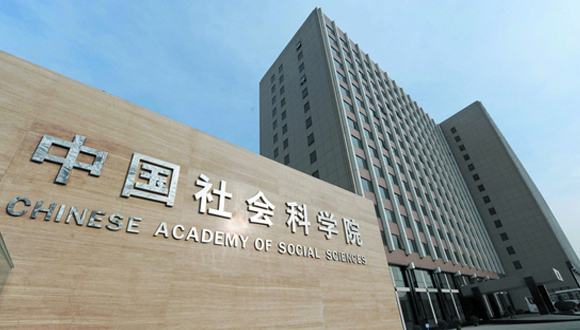CASS renews its commitment to Innovation Program

In the next five years, the Chinese Academy of Social Sciences (CASS) will raise the permit requirements and research standards to be worthy of being called “China’s national team of philosophy and social sciences” and a renowned think tank with global influence, said CASS President Wang Weiguang at the CASS 2016 Annual Conference, which was held in Beijing from Jan. 25 to 26.
In an address to the Chinese Academy of Social Sciences (CASS) 2016 Annual Conference, which was held in Beijing from Jan. 25 to 26, CASS President Wang Weiguang reviewed the think tank’s work in the past year as well as the progress it has made on the ongoing “Innovation Program” in the past five years.
Last year, CASS made headway in its innovation system, think tank, faculty diversity as well as other pioneering projects, according to the Report on CASS Work, which Wang delivered at the conference.
Wang laid out CASS’s guiding ideology for 2016 and beyond: “We should hold high the great banner of socialism with Chinese characteristics under the guidance of Marxism-Leninism, Mao Zedong Thought and socialism with Chinese characteristics. We should further promote the Innovation Program for philosophy and the social sciences while building a think tank with Chinese characteristics.”
Meanwhile, emphasis will be placed on three aspects. The first priority is theoretical learning, guiding as well as innovation. Second, the Innovation Program is a major strategic mission of philosophy and the social sciences. Third, the key to think tank development is high-caliber achievements and professionals.
CASS took the lead in introducing the Innovation Program in China starting in the second half of 2011. The project renewed the CASS faculty’s devotion to philosophy and the social sciences. Their initiative and creativity greatly liberated and developed the think tank’s research capacity, Wang said. In this way, progress has been made in research, expertise, as well as in organizational creativity and management reform. All of these are a testament to CASS’s efforts over the last five years.
In the next five years, CASS cannot remain stagnant, Wang said. Instead, the think tank should raise the permit requirements and research standards to be worthy of being called “China’s national team of philosophy and the social sciences” and a renowned think tank with global influence, he said. Thus, CASS can make strides in research achievements and expertise, Wang said.
Lü Sha is a reporter at the Chinese Social Sciences Today.

 PRINT
PRINT CLOSE
CLOSE